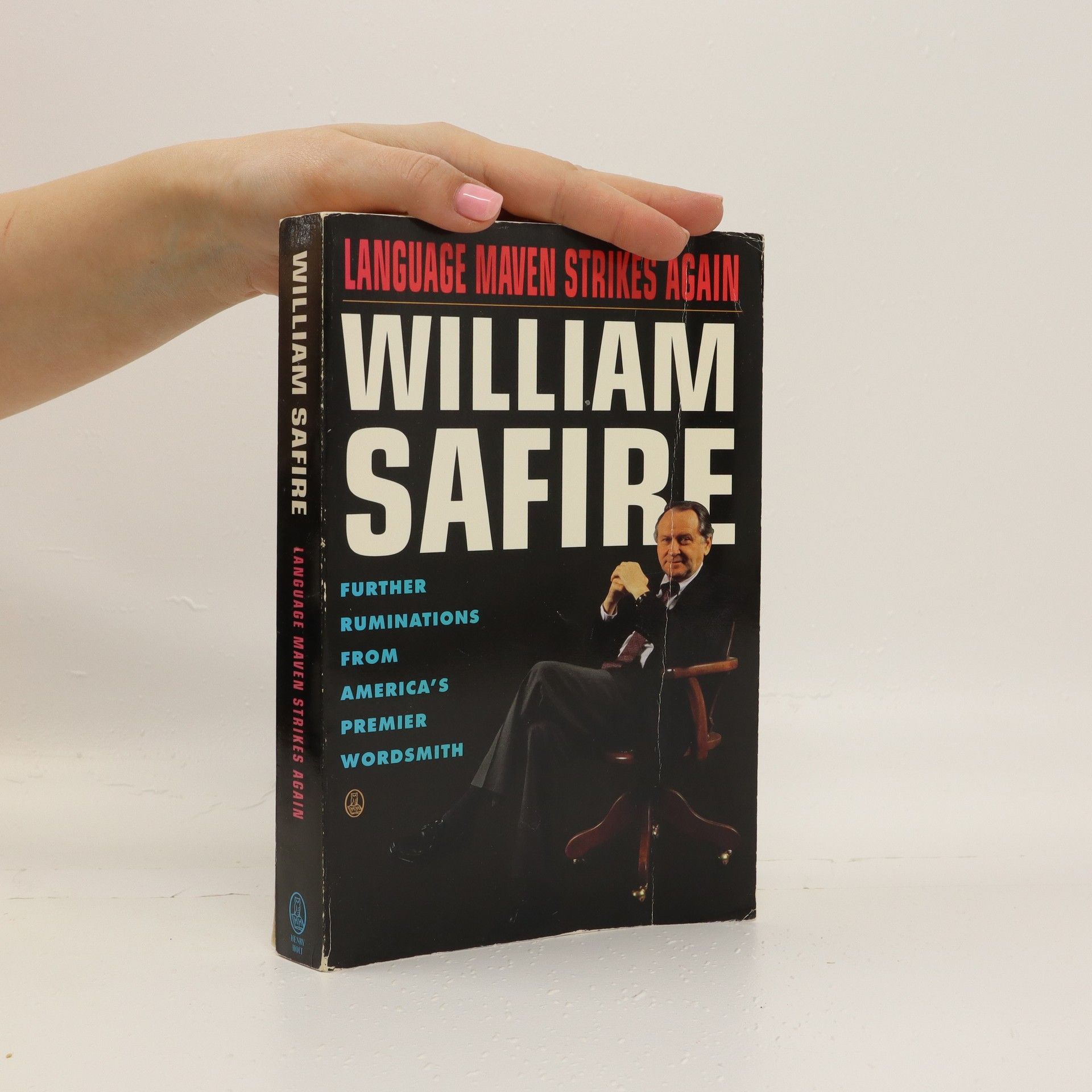William Safire Bücher
William Safire war ein amerikanischer Autor, Kolumnist und Journalist, der vor allem als langjähriger politischer Kolumnist für die New York Times bekannt war. Seine Kolumne "On Language" in der New York Times Magazine befasste sich mit populärer Etymologie, neuen oder ungewöhnlichen Sprachverwendungen und anderen sprachbezogenen Themen. Safire besaß ein einzigartiges Talent dafür, die Feinheiten der Sprache und ihre Verbindung zu Politik und Gesellschaft zu analysieren. Sein Schreiben wurde für seine Einsichten und Klarheit geschätzt.






Featuring more than one thousand new, rewritten, and updated entries, this reference on American politics explains current terms in politics, economics, and diplomacy.
Historical information and entertaining illustrations of the vagaries of the American language supplement this detailed etymology of words and phrases native to the United States
An anthology of two hundred of history's outstanding speeches, arranged by theme and occasion.
Language Maven Strikes Again
- 447 Seiten
- 16 Lesestunden
Safire guides us through the labyrinth of computerese, calls for the revival of the old-fashioned "haberdasher", and interprets the trendy "rents", "squids", and "swangst" (parents, weaklings, and anxiety), in this new collection of his ever-popular "On Language" columns.
Selected from 17 million prints preserved in the archives of The New York Times , the spectacular photographs in this book provide a spellbinding sample from the rich archive that is the twentieth century, as seen through the eyes of a great newspaper. Revealed is the extraordinary and omnivorous breadth of photography's vivid pictures of both World Wars; of presidents, mayors, dictators and celebrities; of Beatles fans and Halley's comet; of victims and perpetrators, riots and disasters; of Bill Bradley on the court and Willie Mays sliding into home--and a great many more. Underlying them all is the gripping immediacy that makes news photography not only an indispensable presence in the daily paper but a vital part of history. This book includes an illustrated chronology that traces the evolution of the technology and business of news photography, with special attention to the role of The New York Times and to the recent rise of digital technologies in newspaper production. Originally published to accompany an exhibition at The Museum of Modern Art, New York.
What's the Good Word?
- 325 Seiten
- 12 Lesestunden
In Love with Norma Loquendi
- 349 Seiten
- 13 Lesestunden
The Pulitzer Prize-winning columnist describes his lifelong fascination with Norma Loquendi--common speech--in a collection of columns that celebrates the mysteries and continual evolution of the English language. 15,000 first printing.
Good Advice on Writing
- 288 Seiten
- 11 Lesestunden
Writers over the decades speak out on the art (and task) of writing, as collected by Pulitzer Prize-winning New York Times language columnist William Safire and Leonard Safir. A feast for wordsmiths and a must-have handbook for writers of all stripes.



